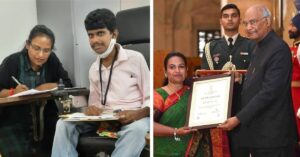This Bengaluru Man Will Convince You to Grow And Eat Weeds, And They Are Delicious!
From using curd and jeevamrutha, Suresh has revived over 15+ edible weeds in a 2,000 sq ft community garden.
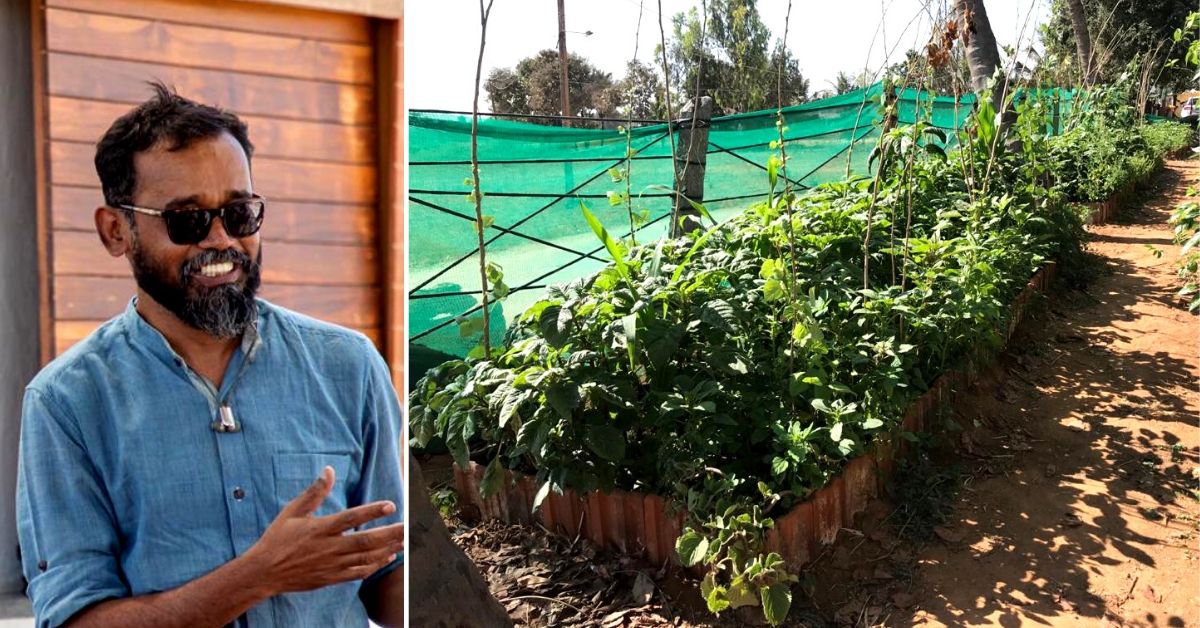
Artist Suresh Kumar G has been making the most of the lockdown in his garden. The 47-year-old resident of Bengaluru not only tends to the fruits and vegetables but also looks after the weeds.
For long, we have believed that weeds are undesirable and unwanted plants. But, not Suresh.
“A lot of us unknowingly get rid of weeds that grow in our gardens, thinking that they deter the growth of fruits and vegetables. But, if you look at traditional cuisines, weeds have been used to cook dishes. The reason is they are not only edible but also have numerous health benefits,” informs the artist.
World of wondrous weeds
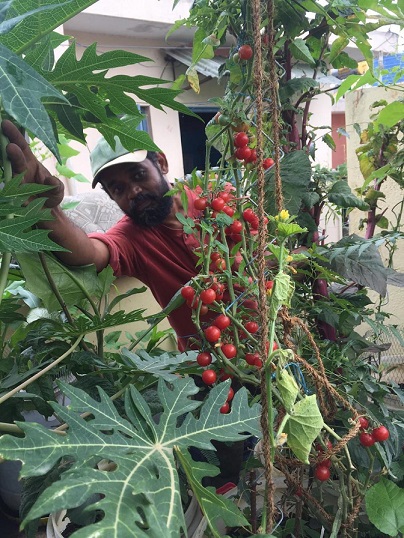
Suresh recalls that his mother and aunts had been using weeds to whip up delicious curries. After his mother passed away a few years ago, the single father began spending a lot of time in the kitchen, to replicate her food. This is when he put his efforts into researching edible weeds and realised that knowledge on these has been diminishing.
He began sharing this knowledge with his ever-growing group of urban gardeners, but he did not stop there.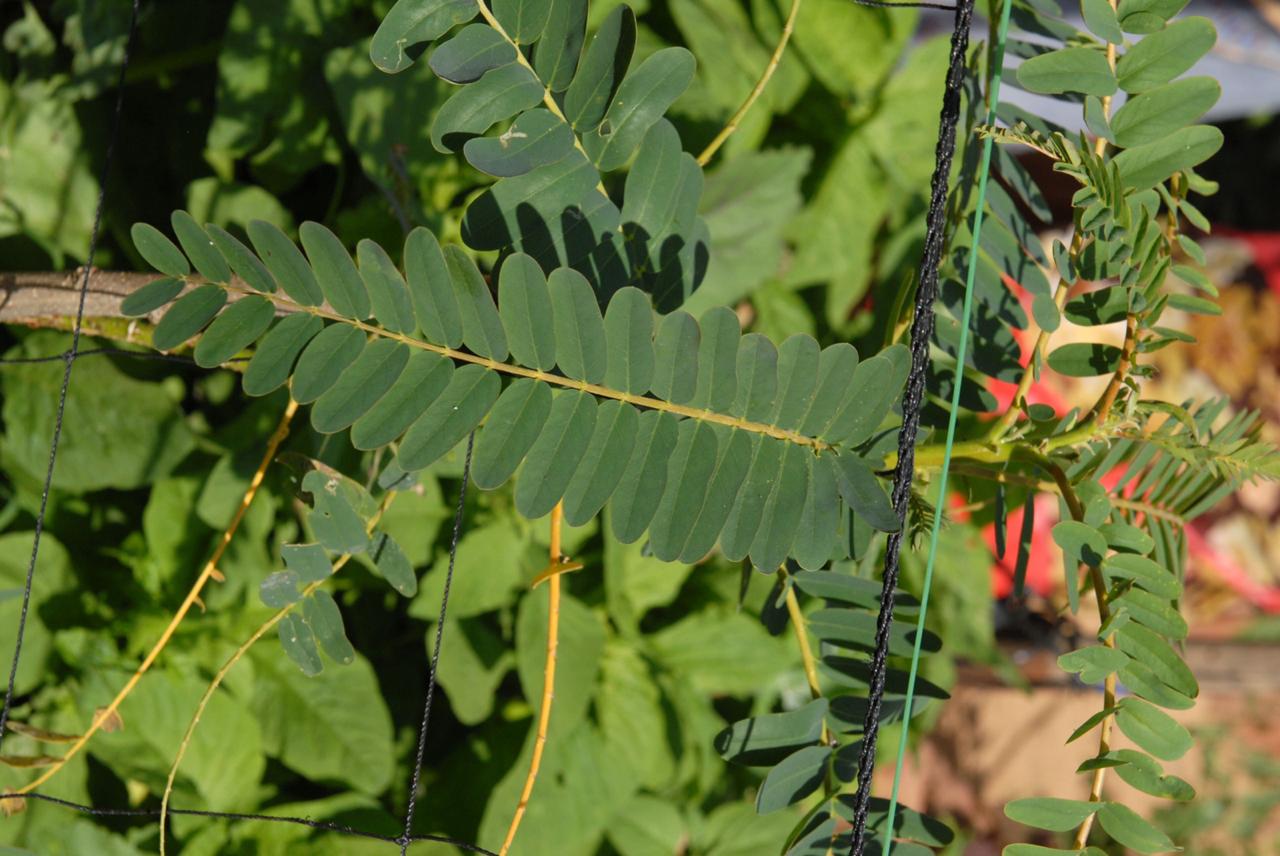
A son of the soil, he would often visit V Kallahalli, his mother’s native village located across the Dodda Kere Lake, near Sarjapur. He would come here for community art projects, where social issues were touched upon through the art of storytelling.
On visiting his native village over the years, Suresh could register a few noticeable changes. “This is the village where my mother grew up. But, the villagers here did not have any knowledge about the weeds when I asked them. The concepts of kitchen gardens, along with farming, were also diminishing due to rapid urbanisation. The use of edible weeds too was being wiped out from their cuisines,” recalls Suresh.
Some of the edible weeds include Komme Akku, Aggsee, Gonakku, Pullsakku, among others.
To show them the value of reviving edible weeds, Suresh decided to give some of them a tour of his 800 sq ft terrace garden at his home in South Bengaluru. For those who couldn’t, he made a PowerPoint presentation. He also realised that to spread knowledge to the entire community, they needed a space where they could come and learn.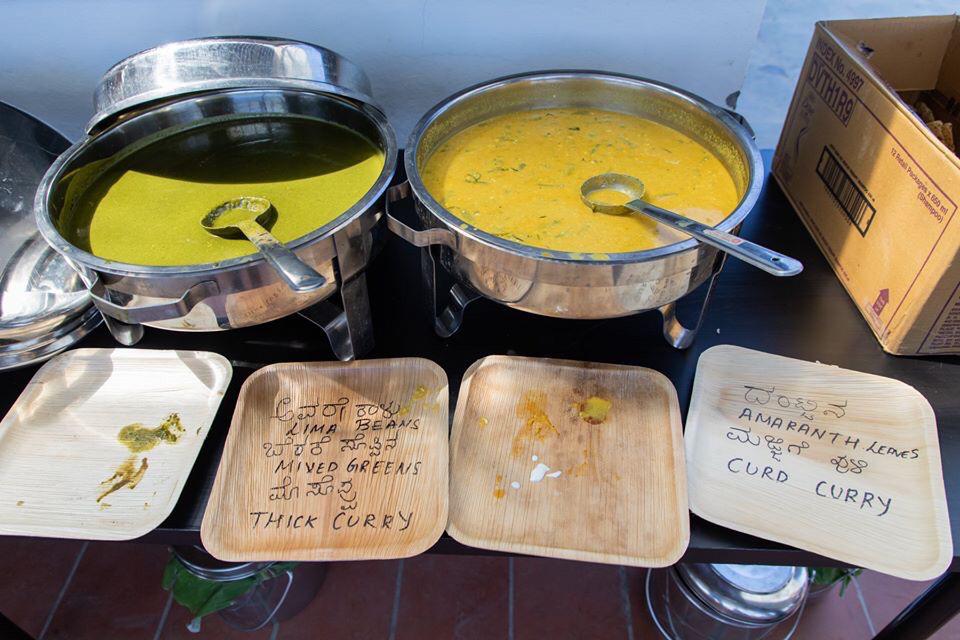
“There was a two-storey community centre in the village. It had about 2,000 sq ft which could be used for gardening. The building had initially served the purpose of a veterinary hospital. So, after we spoke to the village head, they agreed to have us utilise that space for gardening,” he says.
Additionally, Suresh’s work, especially in his terrace garden, made him popular among folks practising urban gardening. And luckily, this recognition helped him secure an invite to the ‘Urban Biodiversity Retreat’ organised by the Bangalore Sustainability Forum.
“Here, a lot of people came to get grants for their biodiversity projects. They really liked my proposal and awarded us Rs 5 lakh, which led to the birth of ‘Sarjapur Curries’ in June 2019,” he says.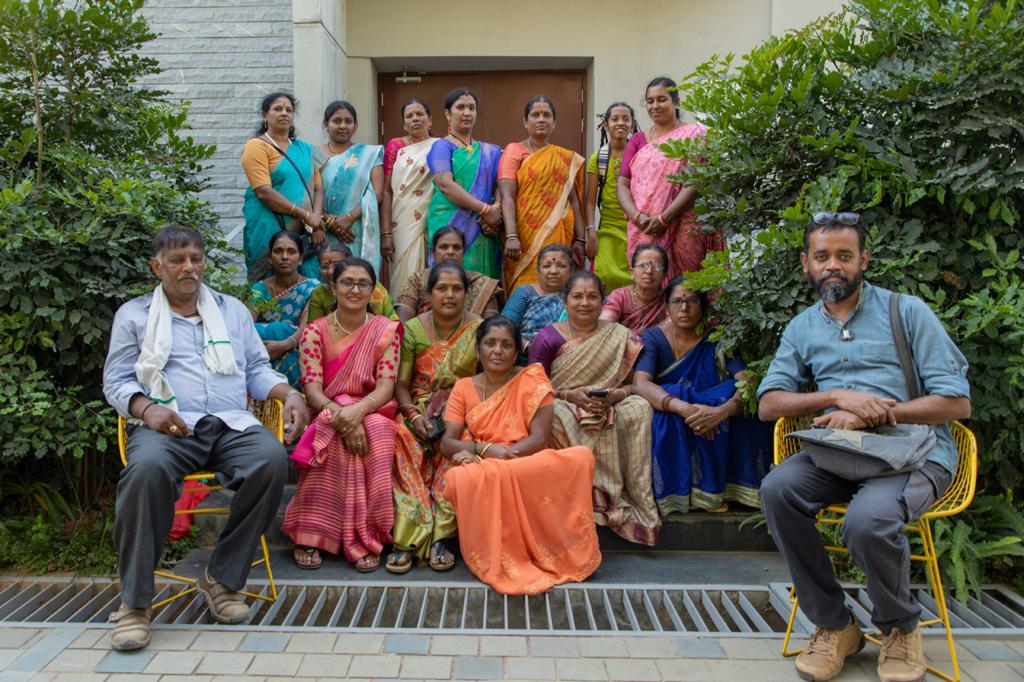
The grant helped Suresh in streamlining the activities under the initiative. Since then, he has helped the village communities revive over 15+ edible weeds, along with 6+ types of wild veggies, all grown naturally.
In the village, a women’s SHG has also been deeply involved in the process, replicating and growing these in their homes. Suresh has also set up a seed bank where he’s preserved at least 25+ edible weeds.
A passionate Artist to an avid Gardener
Engaging with communities has always been at the centre of Suresh’s work. After graduating from Delhi College of Art, he returned to Bengaluru, and started teaching in various art schools around the city. He also got involved in small-time community art projects.
As visiting faculty, he taught at the Bangalore University of Visual Art, Srishti Institute of Art, Design and Technology, and Chitrakala Parishad.
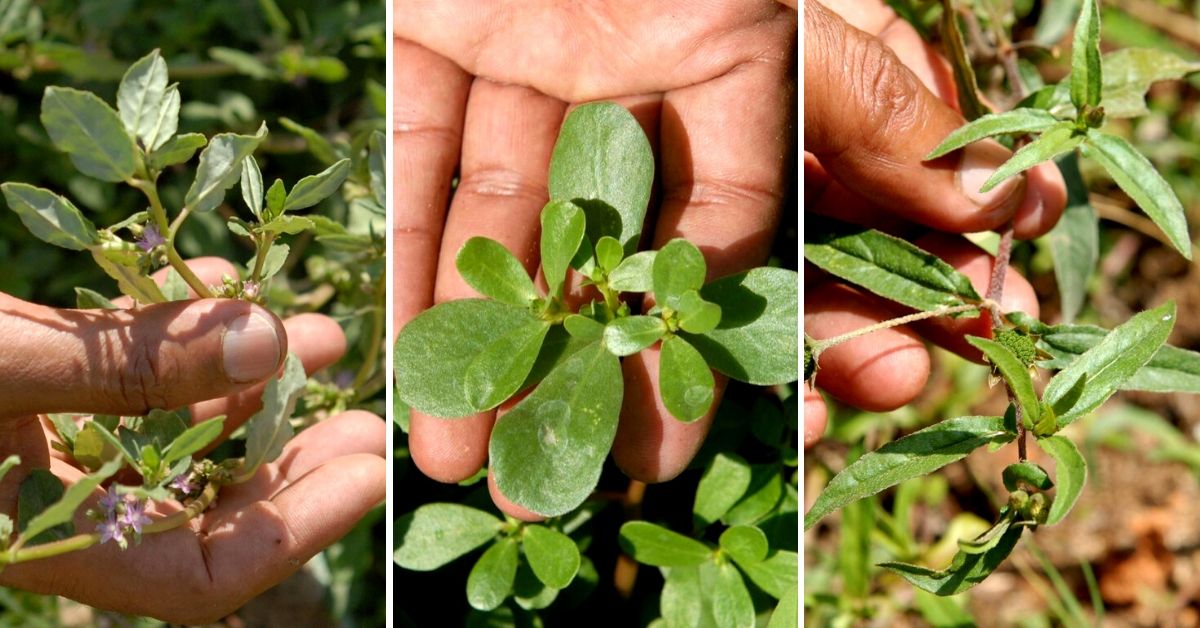
At this time, he was also holding exhibitions in public spaces and working with young independent artists. To support local independent artists, he even founded ‘Samuha’, a collective that served as a pool of resources. Under this, they organised several exhibitions.
However, when it came to gardening, cutting down on travel helped him get deeply involved in the process.
“I had always been very interested in food and how it ends up on our plates. I was travelling a lot for work. Once my mother passed away, I stopped travelling so frequently. Spending more time at home meant I could finally commit to maintaining a garden,” he recalls.
In 2017, he started growing wild vegetables like Ivy gourd, turkey berries, along with conventional vegetables like chilies, brinjals, broad beans, tomatoes, and pumpkins, among others. Since he would missed his mpther’s edible weed dishes, he began getting in touch with urban gardeners to procure these seeds and grow them at home.
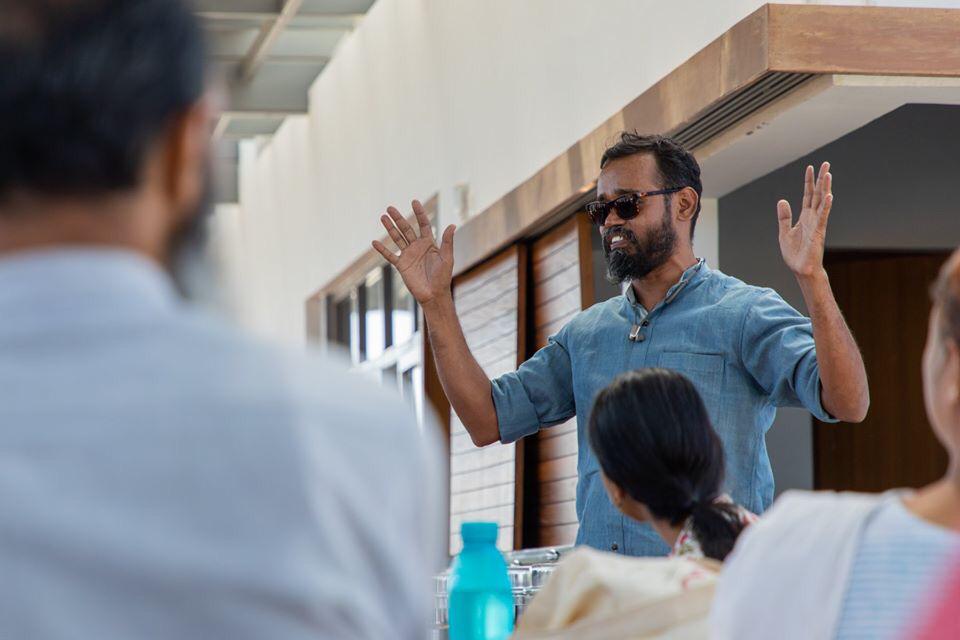
He talks about the advantages of edible weeds. “Take different varieties of Amaranth, they are rich in fibre and protein, along with several other micronutrients. Also, when weeds are grown along with other crops, they act as ‘live mulch’ that keep the soil moist and using less water,” he informs.
Another point he mentions is how the weeds break the cycle of ‘monoculture’ and prevent crops from pest attacks.
During his initial interactions with the villagers, Suresh noticed that they were using a lot of herbicide to prevent the growth of grass. This was to prevent snakes and insects but it was killing the quality of the soil. And hence, a lot of them were unable to grow food. Suresh informed them about this and taught them different ways to improve soil quality.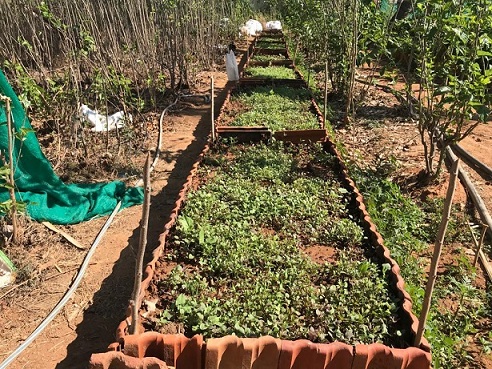
“First, we began collecting soil from dry lake beds as it is known to be very fertile. At the community garden, we raised the beds using this soil and mixed it with coco peat from neighbouring factories. With the help of the grant, we were also able to install drip irrigation and water sprinklers which reduced the effort for labour-intensive watering,” he informs.
In addition, he started buying fresh sheep manure from a shepherd in a neighbouring village. “These sheep would graze on healthy green grass all day, naturally making the manure much more rich in nutrients than the cows from the area which were not free-range. It’s important that the soil stays healthy to prevent pest attacks. Hence, we also started making jeevramrutha, which acts as a natural fertiliser and pesticide. While, also using curd and neem oil to further protect from pest attacks,” he says.
Another interesting aspect of this community garden is how materials have been upcycled to maximise the gardening space, making it more functional.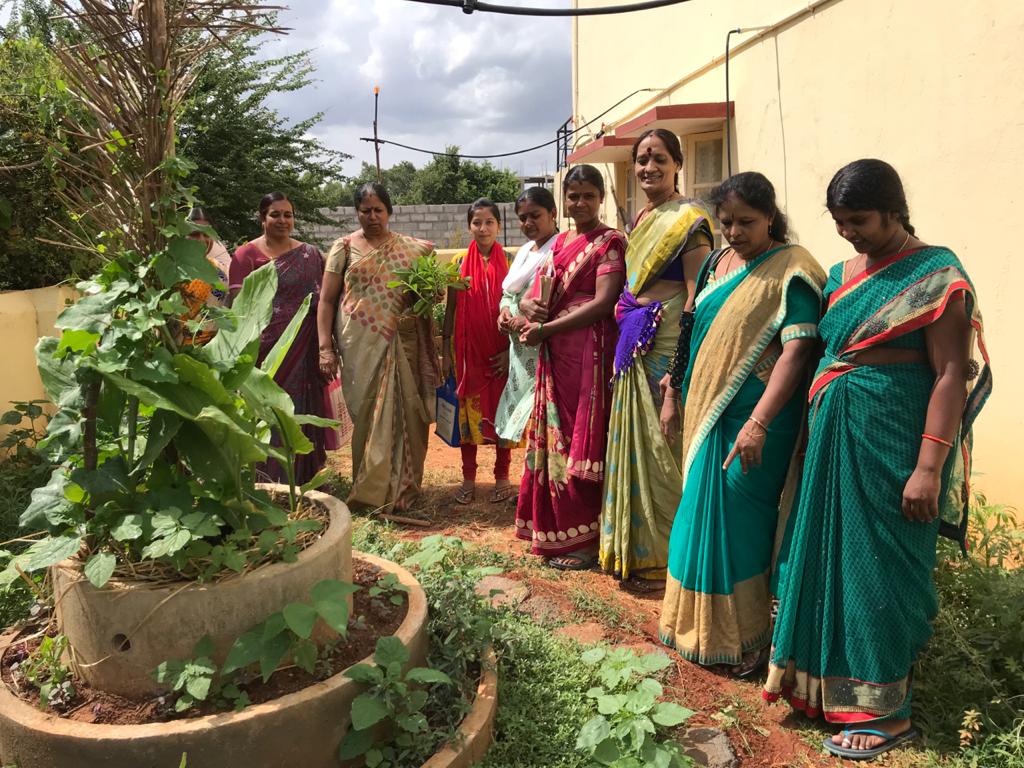
“While raising the beds for gardening, we used terracotta roof tiles found in old house sites. These were used to build the walls of the bed, carefully holding all the soil within it. Also, old cement rings which are used to make wells, were placed them on top of one another to make vertical gardens,” he smiles.
Challenges and breaking the urban-rural divide
Despite all the breakthroughs, Suresh faced several challenges.
“Convincing people to partake in gardening organically: since it does not generate high yields, it is sometimes difficult to convince people about the objective of ‘revival’, which was our focus. Other challenges are a shortage of water in the area, especially in the summer. But, through effective ‘live mulching’, we have overcome that,” shares Suresh.
He also mentions one of his biggest achievements, which was facilitating greater interaction between the rural and urban communities. Through their workshops, Sarjapur Curries has had people from both spheres come together.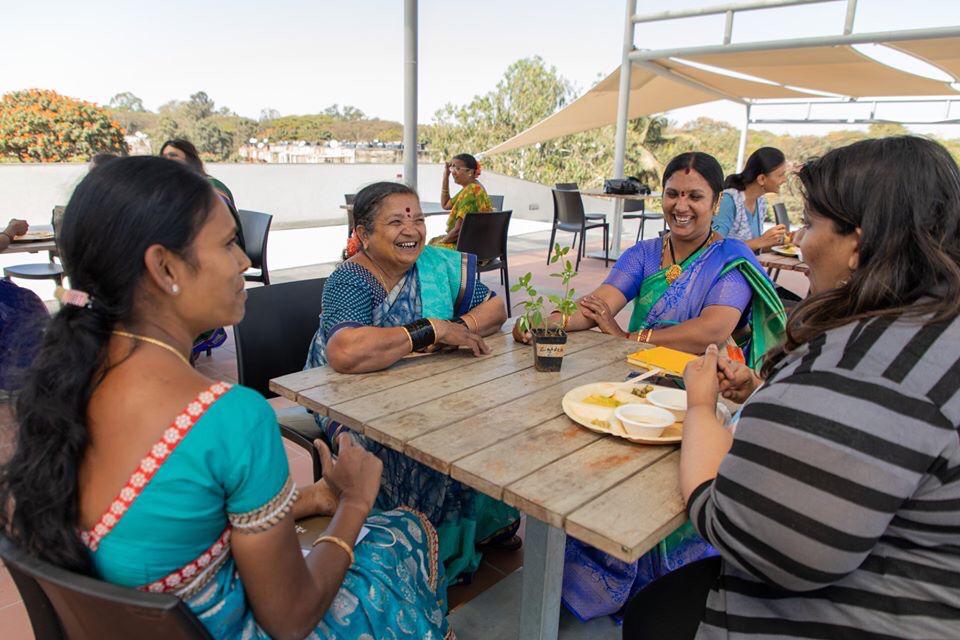
Entrepreneur Ashwini Gajendran is a great example. She knew of Suresh through her network of urban gardeners. When she learnt that Sarjapur Curries was organising a workshop to discuss edible weeds and how to incorporate them into the cuisine, she couldn’t miss it.
“Most of the weeds are not available as regular market produce but have immense health benefits. These are weeds that our mothers and grandmothers cooked, but they have been lost over the years. So, there was a lot of learning in the workshop,” she says.
The 37-year-old says she learnt about edible weeds she could grow in her garden in addition to the ones that already existed.
“I also learnt how to cook a variety of dishes using the weeds, instead of the conventional fry. They taught us how to make chutneys and different gravies. Even my kids like to eat these now,” she says.
Having completed a year with his initiative, there is no stopping Suresh.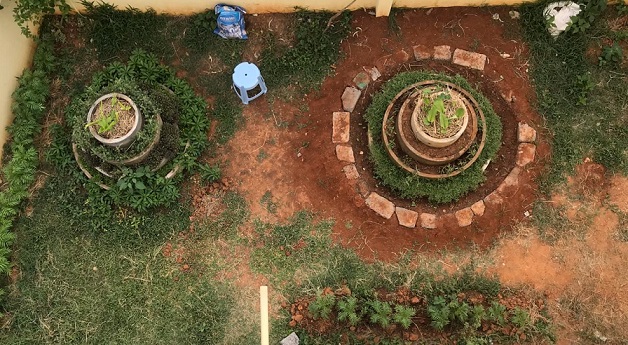
He informs that he has taken it upon himself to document the different recipes systematically so that everyone learns about the value of weeds in their diet. He also wants to scale his project where the garden size increases as well as the community members.
“I want more people to get involved in this project so that they see an opportunity in weeds. My dream is to start a canteen in this village where we serve fresh curries, chutneys, and gravies that are cooked using freshly plucked weeds from the community garden. This will generate jobs for people in the village and keep traditional food alive,” he says, signing off.
(Edited by Shruti Singhal)
Images courtesy: Suresh and Science Gallery, Bengaluru
Like this story? Or have something to share?
Write to us: [email protected]
Connect with us on Facebook and Twitter.
This story made me
- 97
- 121
- 89
- 167
Tell Us More
We bring stories straight from the heart of India, to inspire millions and create a wave of impact. Our positive movement is growing bigger everyday, and we would love for you to join it.
Please contribute whatever you can, every little penny helps our team in bringing you more stories that support dreams and spread hope.







